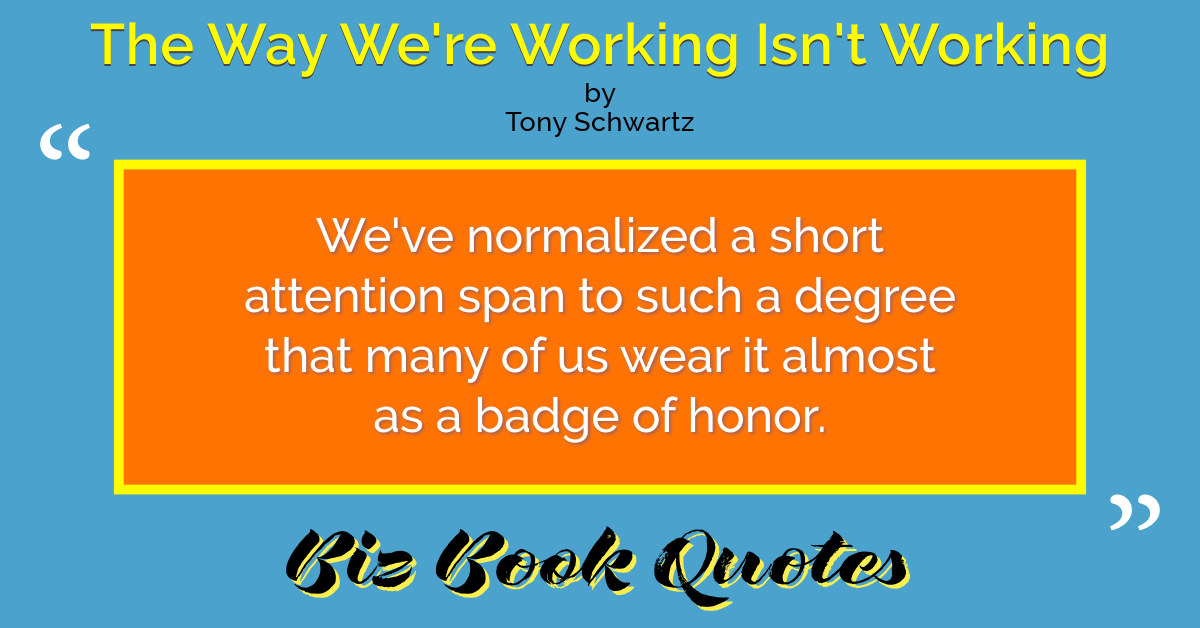 |
We’ve normalized a short attention span to such a degree that many of us wear it almost as a badge of honor.
|
181 |
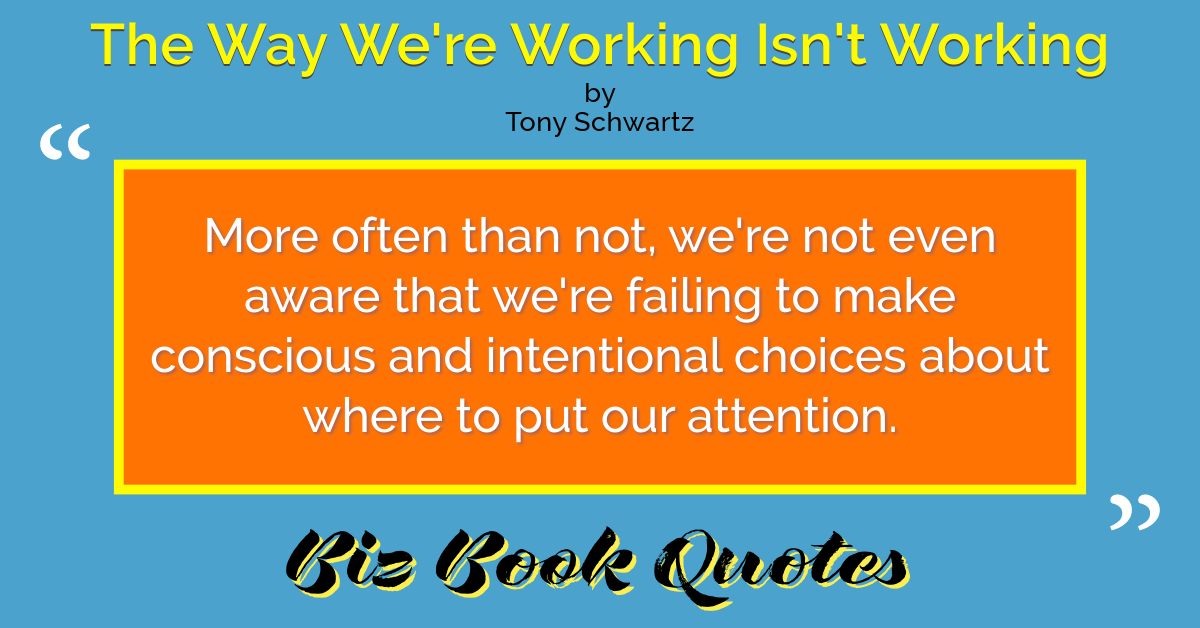 |
More often than not, we’re not even aware that we’re failing to make conscious and intentional choices about where to put our attention.
|
181 |
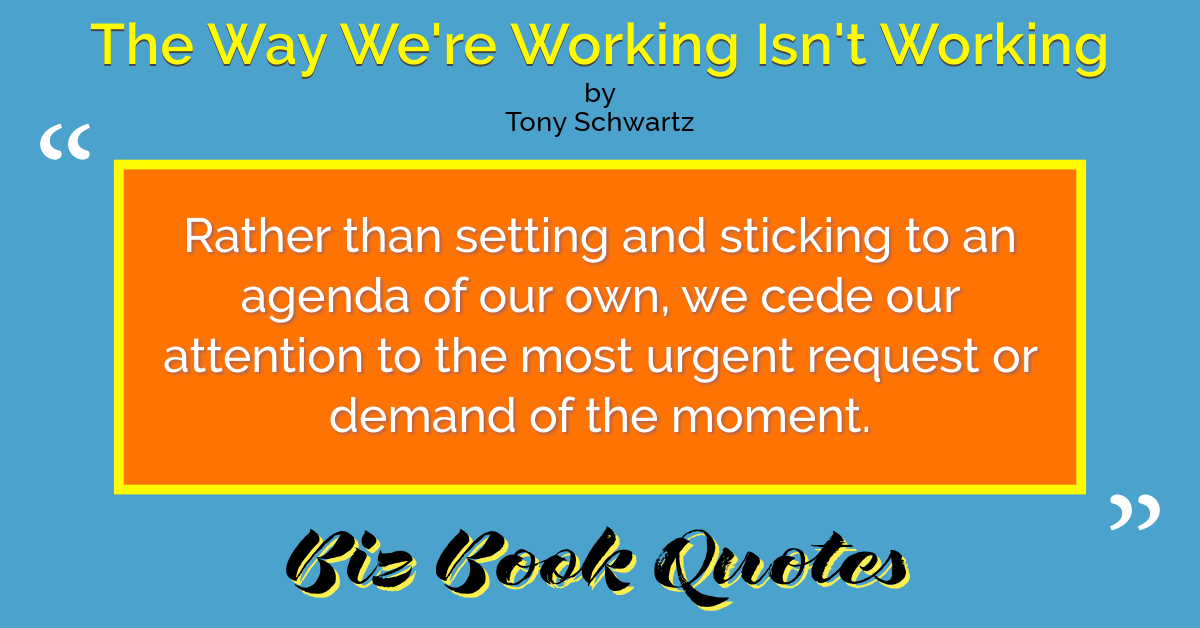 |
Rather than setting and sticking to an agenda of our own, we cede our attention to the most urgent request or demand of the moment.
|
181 |
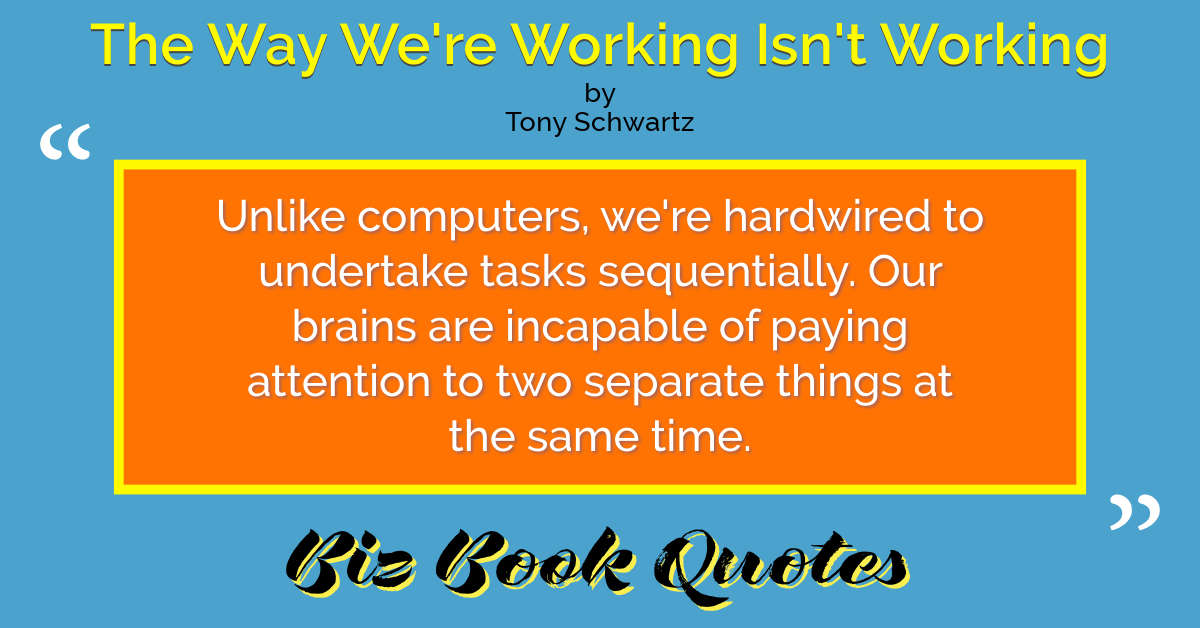 |
Unlike computers, we’re hardwired to undertake tasks sequentially. Our brains are incapable of paying attention to two separate things at the same time.
|
182 |
 |
The more attention required for a given task, the less that’s available for another and the longer it takes to shift from one focus of attention to another.
|
183 |
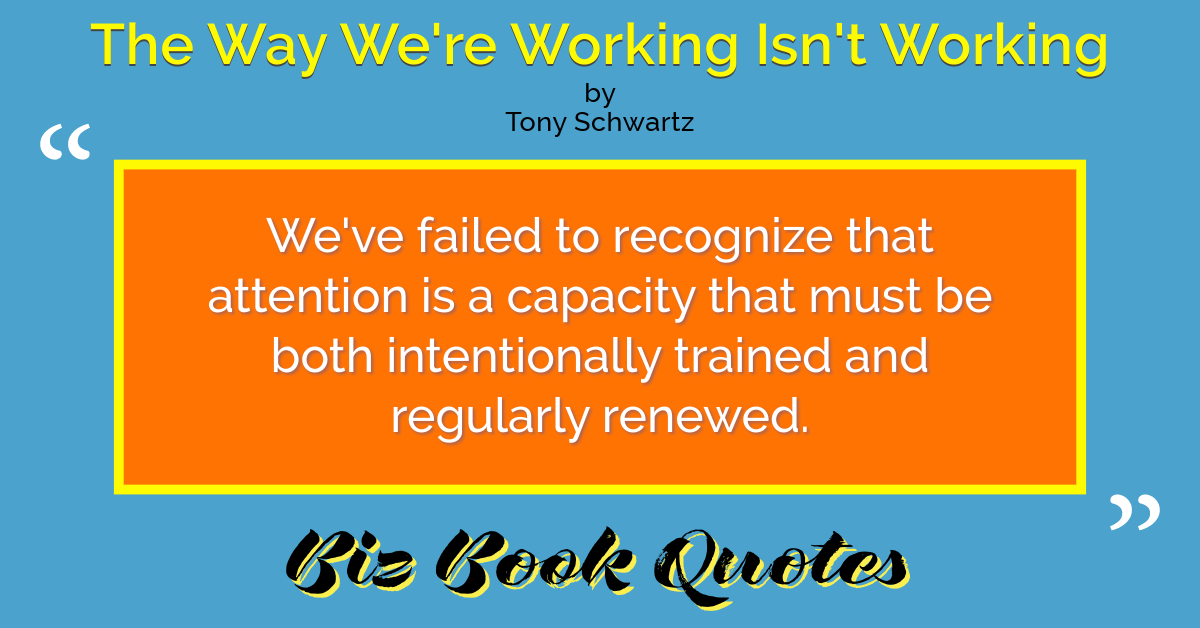 |
We’ve failed to recognize that attention is a capacity that must be both intentionally trained and regularly renewed.
|
187 |
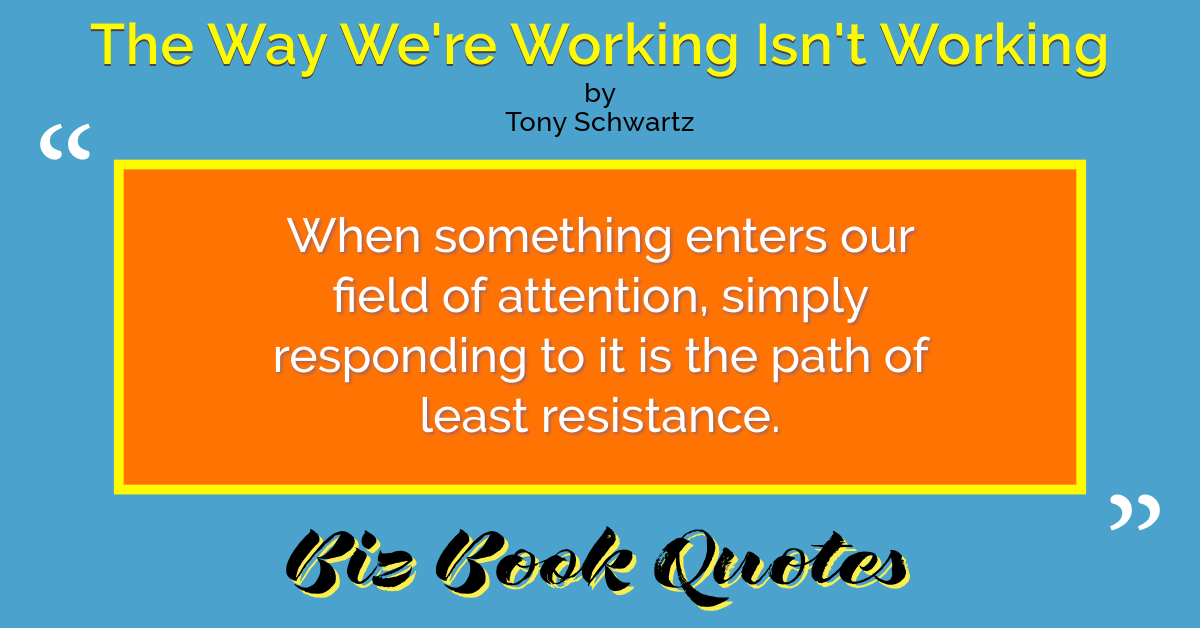 |
When something enters our field of attention, simply responding to it is the path of least resistance.
|
191 |
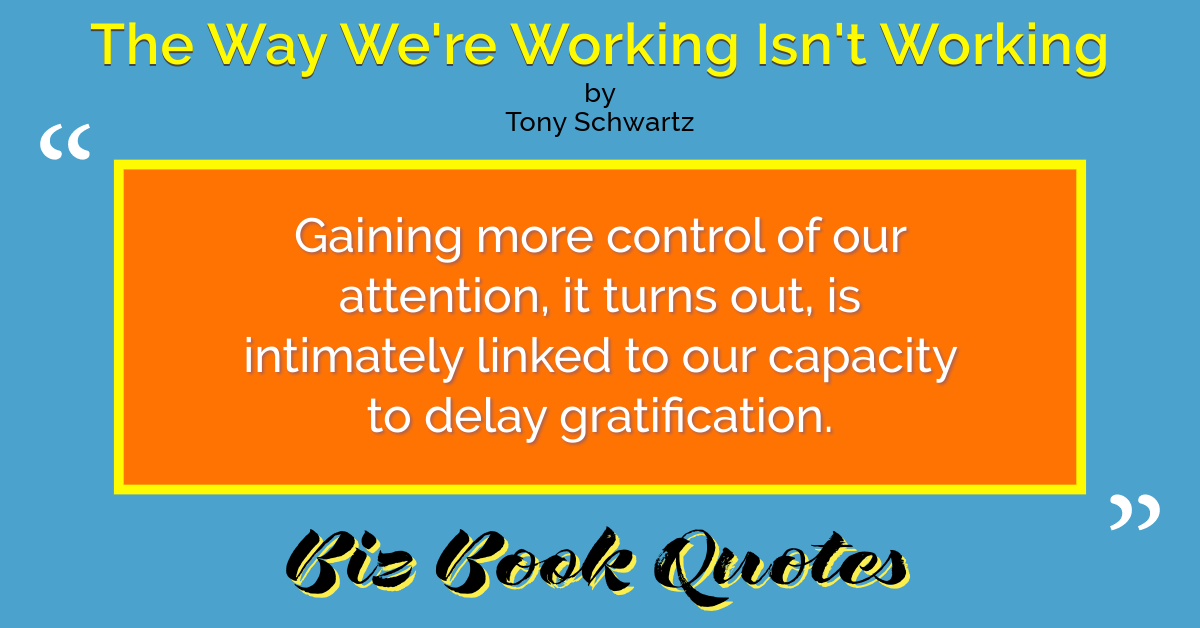 |
Gaining more control of our attention, it turns out, is intimately linked to our capacity to delay gratification.
|
191 |
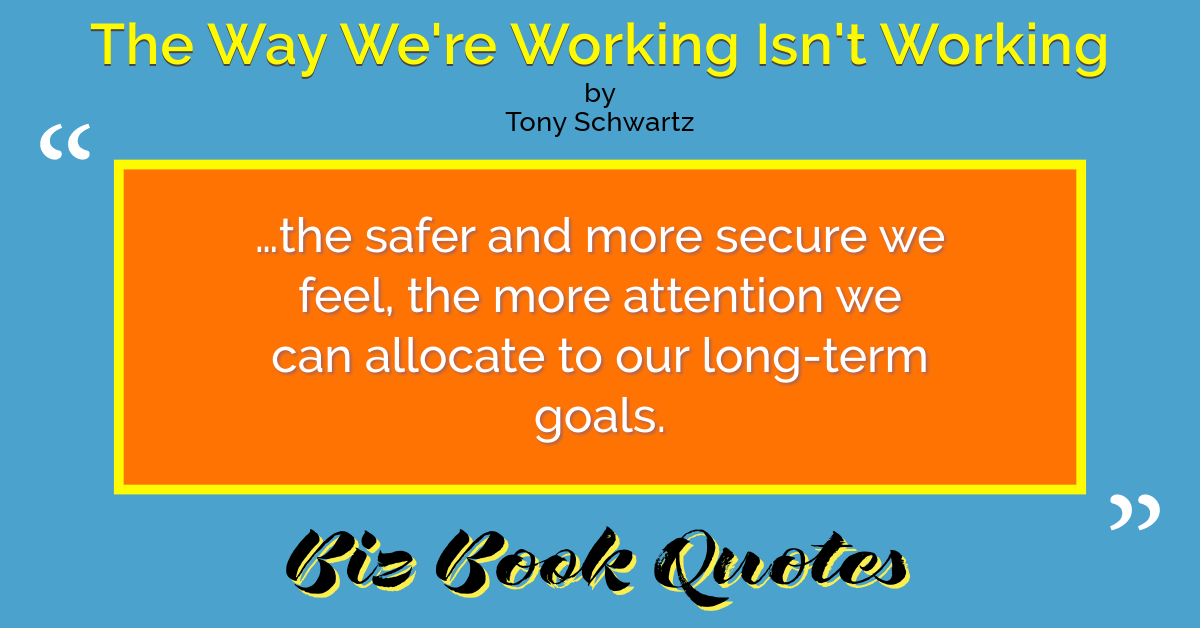 |
…the safer and more secure we feel, the more attention we can allocate to our long-term goals.
|
194 |
 |
If you want those in your charge to be effective at delaying gratification and focusing their attention effectively, it goes a long way to make them feel aared for and secure.
|
194 |